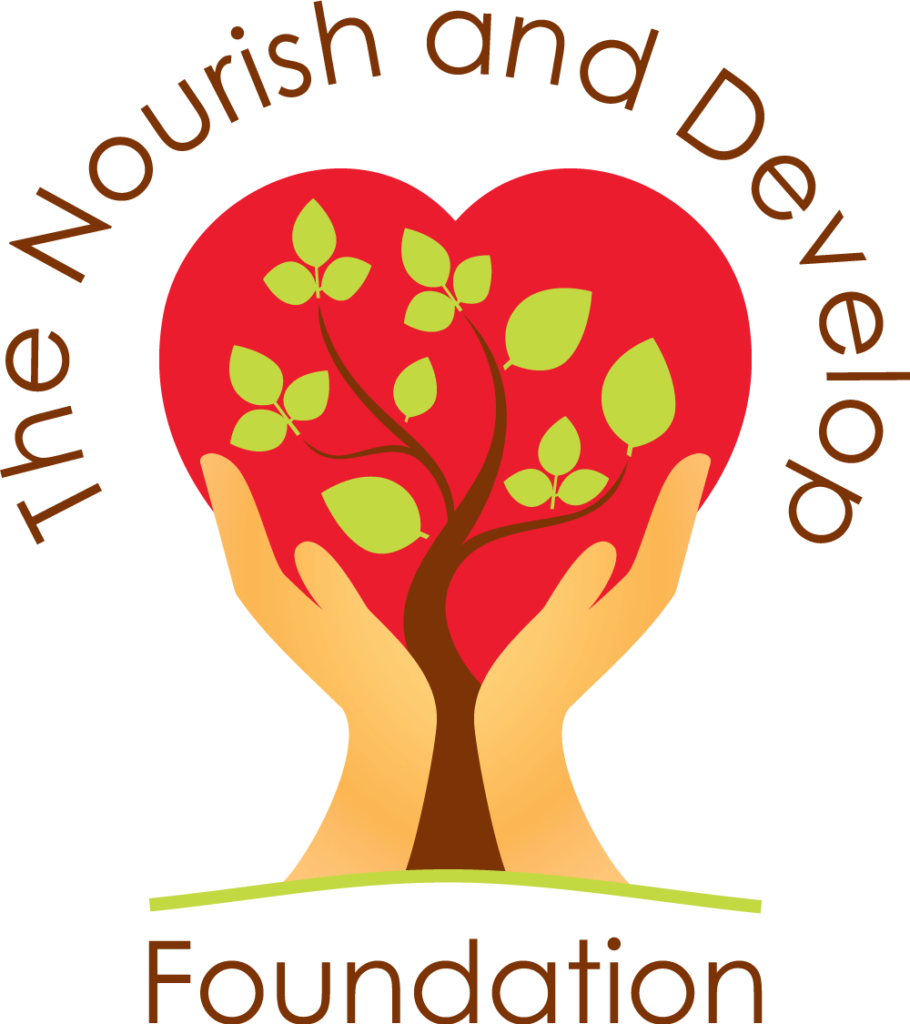In advance of the upcoming federal election on September 20, 2021,
we reached out to our local candidates to understand their perspectives on and approaches to food systems and food security.
We asked three questions:
- What do you feel needs to change most about our current food system?
- At the federal level, what policies and programs do you feel would strengthen food security if put in place?
- What innovations have you recently observed that, if scaled up, could help us build a just and sustainable food system across the country?
Here is what our candidates had to say:
Question 1: What do you feel needs to change most about our current food system?
Angel Godsoe
Green Party of Canada
First, and without stigmatization, the recognition and acknowledgement of food security as a current and growing problem in Canada. Second, encourage, develop, and support local food supply chains. Third, teach that good quality, nutritious food is a right, not a commodity to be bought and sold internationally in a for-profit model.
One of (the many) lessons Covid-19 reinforced is that food supply and distribution must be localized within communities. Global transportation of food has a tremendous negative impact on the environment and results in food that has tremendous shelf life, but, often, diminished nutritional value. When coupled with the horrific and equally unsustainable industrial livestock model we, as a society, must break the mold and return to locally produced and distributed food.
Gene Balfour
Libertarian Party of Canada
There are many factors that affect food security, and it is difficult to isolate one as the primary cause. However, excessive government growth and its impact on Canada’s economy has been a major cause. We are now a nation that is overwhelmed by high taxes and burdensome regulations. These aggregate to contribute greatly to food insecurity. Food is produced and distributed by farmers and businesses, not governments. To the extent that public policies interfere with the work of these producers, the availability of nutritious and affordable food is directly hindered. The best way to improve food insecurity is to dramatically decrease government interference in all aspects to our food production and supply chains. They are the experts in this area and its best to let the experts do what they know best without uninformed others meddling unnecessarily in their efforts.
Jamie Schmale
Conservative Party of Canada
A Conservative Government will finalize a compensation program for supply managed processors under CPTPP and CETA and negotiate a compensation package for farmers and processors impacted by CUSMA. We will take action by matching the U.S. governments transportation subsidy for livestock feed, expedite access to business risk management (BRM) programs & make up any provincial funding shortfalls and support affected farmers buying replacement feed by working with participating provinces through AgriRecovery.
Conservatives will open new markets for our livestock, grain, and oilseed producers in our free trade negotiations. We will work towards greater harmonization of farm product regulations with our trading partners, especially the U.S. to remove the CUSMA limits on Canadian exports of powdered milk to third-party countries; establishing reciprocal norms to ensure our quality standards are respected.
We must work with provinces to adopt a grocery supply code. A code of conduct will guarantee Canadian consumers a reliable, affordable supply of food on their local grocers’ shelves.
We must address that many part of this crucial sector is hampered by chronic labour shortages across all skill levels. Which is why, to support farmers and food processors, we will make sure they have access to the workers they need. Canada’s Conservatives will implement an Agriculture and Agri-Food Labour Strategy and will develop a long-term strategy to attract skilled workers to the meat processing sector. Furthermore, A Conservative Minister of Agriculture and Agri-Food will develop a strategy for dealing with these labour shortages in close consultation with industry.
Judi Forbes
Liberal Party of Canada
Unsustainable farming and fishing practices put a huge strain on our land, waterways, and oceans, threatening the viability of our food-production systems. What’s more, Canadians waste forty per cent of the food we produce, costing us $31 billion yearly. Our current food system is a leading contributor to climate change, and we do not properly recognize the environmental causes of the current food-production and distribution systems – namely water and air pollution, soil contamination, and loss of biodiversity.
What government can do:
- Initiate a review of food and agricultural policies to ensure that programs and supports are inclusive of a diversity of food and agricultural operations across different scales, production practices and market channels, particularly those that promote sustainable practices.
- Establish supports and training opportunities for farmers and fishers to transition to more agro-ecology production regimes including significant new support for new entrants and public funding for farmer-led R&D in organics and knowledge transfer.
- Revise Canada’s Fisheries Act to better protect fish habitats and support sustainable fisheries in coastal communities (https://foodsecurecanada.org/policy-advocacy/five-big-ideas-better-food-system).
The federal Liberal party supports and sustainable agriculture in many ways. A significant one is through the nationwide Canadian Agricultural Partnership (CAP) program. In co-operation with the provinces and territories and farm groups (including organic farmers) the program brings educational workshops on best management practices (BMP) including the environment. Over 70% of farmers in Ontario have attended at least one of the workshops. The CAP program further supports the implementation of many of these BMP’s with cost-share grants.
Zac Miller
New Democratic Party of Canada
I think what needs to change the most in our current food system is the idea that food is a human right, and nobody in Canada or our riding should have to go without nutritious food if they cannot afford it. Making sure that everyone has a baseline of income support to ensure they meet this human right would go to keeping individuals healthy. This means implementing a basic income on top of our social safety net and would be first rolled out to those who need it most such as seniors, low-income and people living with disabilities. The CERB showed us that a guaranteed income will work and everyone in Haliburton-Kawartha Lakes-Brock would benefit from this policy.
Question 2: At the federal level, what policies and programs do you feel would strengthen food security if put in place?
Angel Godsoe
Green Party of Canada
The current, corporate controlled and centralized food processing systems are unsustainable and undermine community efforts (and all their associated health and social benefits).
At the federal level the Green Party of Canada will:
- Provide funding to agriculture and farmers, especially small and ecological farms
- Protect agricultural lands from development
- Encourage Canadians at all levels to embrace a “grow local” mentality
- Support local food production and supply chains
- Partner with municipalities for relief funding distribution, allying with organizations like the Federation of Canadian Municipalities
- Develop urban partnerships with all orders of government to re-energize our urban cores across the country
- Redirect funding to social and community programs
- Make public investments provide returns to the public (no public money for public/private partnerships)
- Implement a Guaranteed Livable Income to alleviate poverty and allow low-income families to choose to support local
- Implement Universal Health Care and free post-secondary education
Gene Balfour
Libertarian Party of Canada
Jamie Schmale
Conservative Party of Canada
Judi Forbes
Liberal Party of Canada
Canada has ratified the UN International Covenant on Economic, Social and Cultural Rights, which gives our government the legal duty to guarantee its citizens the right to adequate food. Yet four million Canadians, among them 1.15 million children, have trouble putting food on the table. This problem is far worse in northern and remote communities, where, in Nunavut, for example, two-thirds of children are food insecure.
What government can do:
- Through Canada’s Poverty Reduction Strategy, work with provinces and territories to improve social programs to ensure there is an income floor below which no one can fall so that all Canadians can afford adequate, nutritious food.
- Overhaul Nutrition North to improve access and affordability of food while strengthening northern regional food systems, including public support for programs enhancing access to traditional and community-grown foods.
Ensure that international trade and investment agreements do not undermine public programs that enhance respect for human rights, sustainable livelihoods and/or food sovereignty (https://foodsecurecanada.org/policy-advocacy/five-big-ideas-better-food-system)
Zac Miller
New Democratic Party of Canada
At the federal level, a policy that we would implement on top of a basic income would be a national school nutrition program.
This program would give every family in Haliburton-Kawartha Lakes-Brock the ability to have food literacy skills to make healthy choices for life. We would partner with local communities and provinces to achieve this. Another policy would be to connect local farmers with communities to create local food hubs, community supported agriculture and networks to increase the amount of food sold, processed, and consumed in local or regional markets. In order to allow our local producers to be sustainable, the NDP when in government would create grants for producers to access in order to farm and produce sustainably.
Question 3: What innovations have you recently observed that, if scaled up, could help us build a just and sustainable food system across the country?
Angel Godsoe
Green Party of Canada
The last 18 months have awakened many to the value of locally sourced food production and manufacturing; to the value of community. There is an increased recognition of who and what is important.
Innovations moving us towards a just and sustainable food system include:
- Trend towards plant-based protein sources
- Trend towards smaller farms with organic farming techniques
- Increase in green-house technology to extend the growing season in colder climates
- A resurgence in the popularity of local farmers’ markets and the ‘support local’ mentality
- Investing in alternative energy sources for food production
- Utilizing technologies such as hydroponics to increase local food production
Gene Balfour
Libertarian Party of Canada
Innovations are ongoing and too numerous to pick just one that can ensure “just and sustainable” food security. I worked in the computer and information technology sector from 1977 to 2018 in progressively more senior roles. From 2009, I was Director, Talent Supply Chain for R3D – an international consulting company. Our teams of experts implemented state-of-the-art ‘enterprise resource planning’ and ‘production control’ systems at automotive manufacturing plants and their supply chains located across the USA, Mexico, Brazil and France. From this experience, I witnessed and was a key member of project teams that planned and implemented these systems for over 110 sites.
My point is that modern innovations are both discrete and systemic. By this I mean that we have all entered the Digital Age which has evolved and become continually more robust over the past two decades. Our digital economy enables the integration of many diverse technologies and systems to produce productivity gains unimaginable by most people.
One of the most promising areas of technology is the block chain which promises in the near future to do for intelligent financial/legal transactions processing what the Internet has done for interpersonal transactions involving social and information exchanges.
Politicians and government bureaucrats are not known for their creativity, flexibility, industriousness, technology smarts or any other quality that would drive improvements in the food producing and distribution industries. Why should Canadians trust government officials to address food insecurity when they possess no expertise in systems and processes that can truly address this issue? No amount of nice-sounding rhetoric or naive election promises by politicians will ever make a serious dent in the pressing issue of food insecurity.
Jamie Schmale
Conservative Party of Canada
Conservatives support Canada’s system of supply management, including its three pillars: production management, predictable imports, and a pricing mechanism. To meaningfully build a just and sustainable food system, all three pillars must be scaled up appropriately so that we are able to work with all levels of government as well as independent private businesses. Which is why previous Conservatives government announced compensation for CETA and CPTPP, which the Liberals falsely claimed credit for and subsequently delayed it.
Judi Forbes
Liberal Party of Canada
Community programs and local policies that seek to solve problems in innovative ways need to be scaled up. The Nourish Hub in Cannington is doing great work in that community, with a small grocery story where people buy on points and where feminine products and pet products are free. There are community gardens that help families grow fresh food and educational programs that help individuals understand ways to prepare nutritious food.
This is not just about food scarcity in this area – but rather income inequity. This government needs to move forward with a program to ensure no one falls below the poverty line. There is an effort being made by a number of Liberal MPs to move toward a Universal Basic Income program across Canada. Such a program would help solve much of the food insecurity problem in this country and I personally would support it with the caveat that there is a mechanism to ensure vulnerable populations, like the disabled, get the additional help they need.
Of note: It was the Ontario Provincial Liberal Party who set up the Basic income pilot program to learn and refine it. Though Conservative MPP Laurie Scott promised to retain the program after the election, the Conservative party cancelled the Basic Income Program within a few days of being elected.
Zac Miller
New Democratic Party of Canada
A part of this is also making sure that Canadian farmers are supported so that they are not under cut from items being imported into the country. Free trade was supposed to open markets up for Canadians, but in doing, it saturated us with competitive products, hurting Canadian industry. Feeling the consequences of globalization, producers in Haliburton-Kawartha Lakes-Brock must be supported through subsidies and grants as well as in their succession planning making sure family farms stay in the family and new generations have the resources and abilities to continue operation.
MORE INFORMATION
Alison Davidson
People’s Party of Canada
For the more information on the
Green Party
of Canada’s
platform, please refer to greenparty.ca
For the more information on the
Liberal Party
of Canada’s
platform, please refer to liberal.ca
For the more information on the
Libertarian Party
of Canada’s
platform, please refer to libertarian.ca
For the more information on the
New Democratic Party
of Canada’s
platform, please refer to
ndp.ca
For the more information on the
Conservative Party
of Canada’s
platform, please refer to conservative.ca
For the more information on the
People’s Party
of Canada’s
platform, please refer to
peoplespartyofcanada.ca
Please note that the above statements are those of the candidates and do not necessarily reflect the thoughts or feelings of our organization or our team members.
We thank all candidates who took the time to write these responses, as well as coming to visit us on site at TNDF.
For information on when, where, and how to vote please visit https://www.elections.ca/home.aspx
For information on food security and food systems related to the upcoming election, please visit https://www.eatthinkvote.ca/



